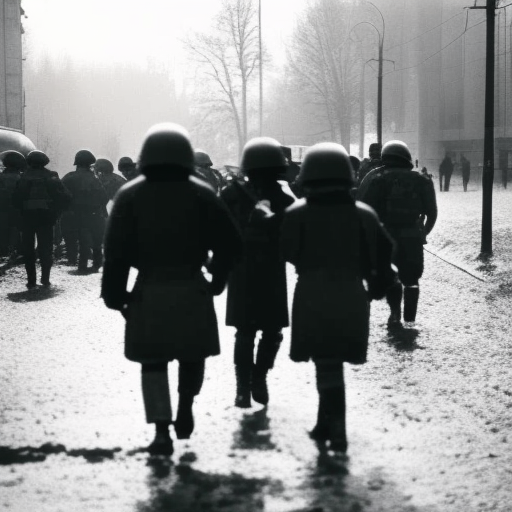Martial Law in Poland: A Summary
In December 1981, the Polish government declared martial law, effectively suspending civil liberties and imposing military rule in response to growing social unrest and political opposition. This move was led by General Wojciech Jaruzelski, who was the head of the Polish United Workers’ Party and also served as the Prime Minister.
Background:
Poland had been experiencing political and economic turmoil throughout the 1970s and early 1980s. The country was grappling with high inflation, food shortages, and a growing national debt. Additionally, the emergence of the Solidarity movement, a trade union and social movement led by Lech Walesa, posed a significant challenge to the ruling Communist Party.
Declaration of Martial Law:
On the night of December 12, 1981, the Polish government declared martial law. The military was deployed across the country, and a curfew was imposed. The government justified this action as necessary to restore order and prevent a Soviet intervention. Communications were heavily censored, and independent media outlets were shut down. Thousands of activists, including members of Solidarity, were arrested and detained without trial.
Repression and Suppression:
During the period of martial law, the Polish government cracked down on dissent and opposition. Solidarity was banned, and its leaders were arrested. Independent trade unions were dissolved, and strikes were brutally suppressed. The government also targeted intellectuals, dissidents, and human rights activists, subjecting them to surveillance, harassment, and imprisonment.
Economic Impact:
Martial law had a severe impact on the Polish economy. The government implemented strict economic measures, including price increases and austerity measures, in an attempt to stabilize the country’s finances. However, these policies further exacerbated the economic hardships faced by the population.
International Response:
The declaration of martial law in Poland was met with widespread condemnation from the international community. Western countries, including the United States, imposed economic sanctions on Poland in response to the human rights violations. The European Parliament passed a resolution condemning the actions of the Polish government and called for the release of political prisoners.
End of Martial Law:
Martial law in Poland lasted for almost two years, until July 1983. The government gradually lifted restrictions and released many political prisoners. However, the repression of political opposition continued, and it was not until 1989 that Poland transitioned to a democratic system.
Legacy:
The period of martial law in Poland remains a significant chapter in the country’s history. It highlighted the resilience and determination of the Polish people in their struggle for freedom and democracy. The Solidarity movement played a crucial role in the eventual downfall of communism in Poland and inspired similar movements across Eastern Europe.
In conclusion, the declaration of martial law in Poland in 1981 was a response by the government to growing social unrest and political opposition. It resulted in the suspension of civil liberties, the repression of dissent, and a severe impact on the economy. The international community condemned the actions of the Polish government, and martial law was eventually lifted in 1983. The legacy of this period continues to shape Poland’s political landscape and serves as a reminder of the fight for freedom and democracy.












